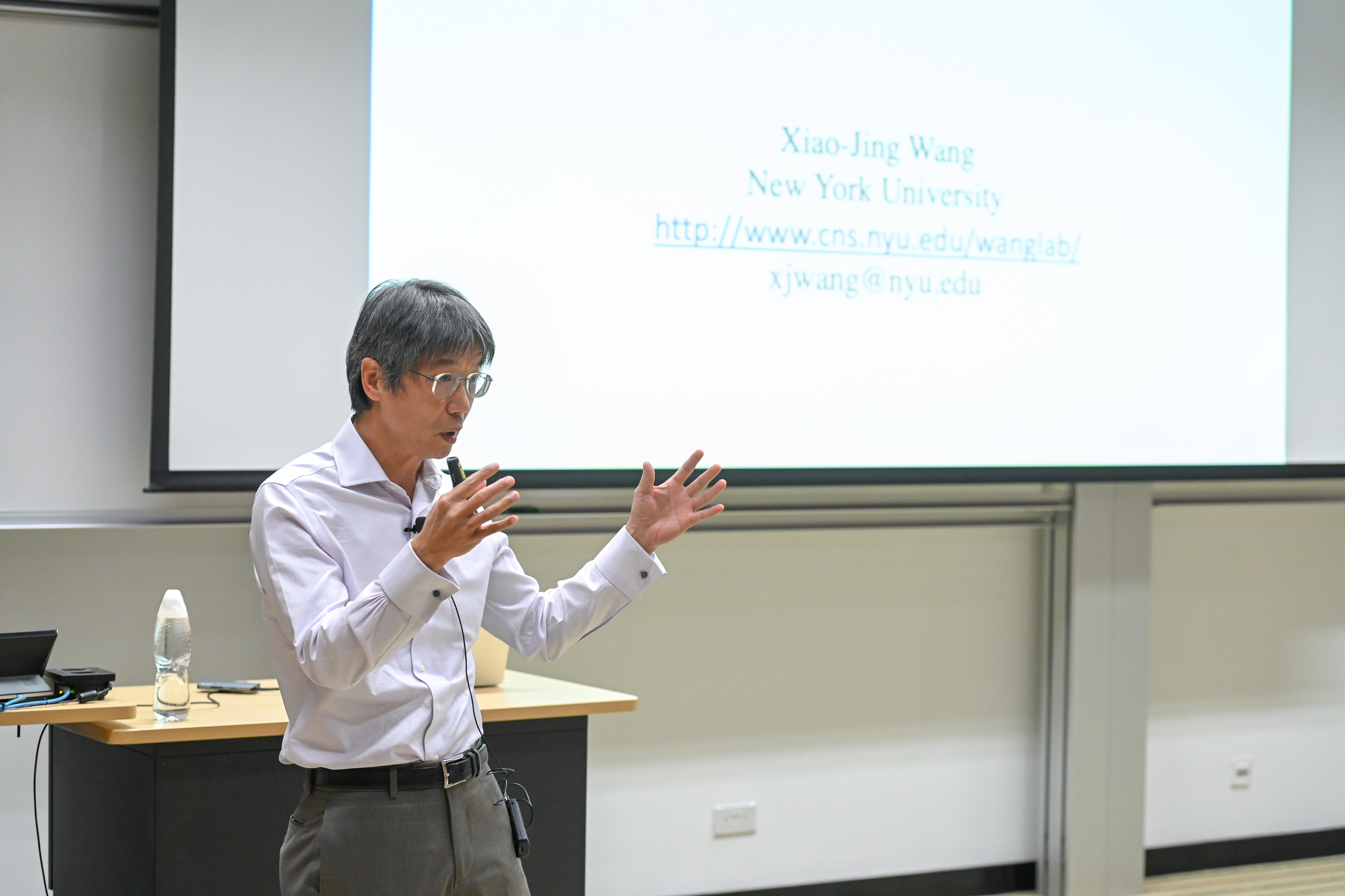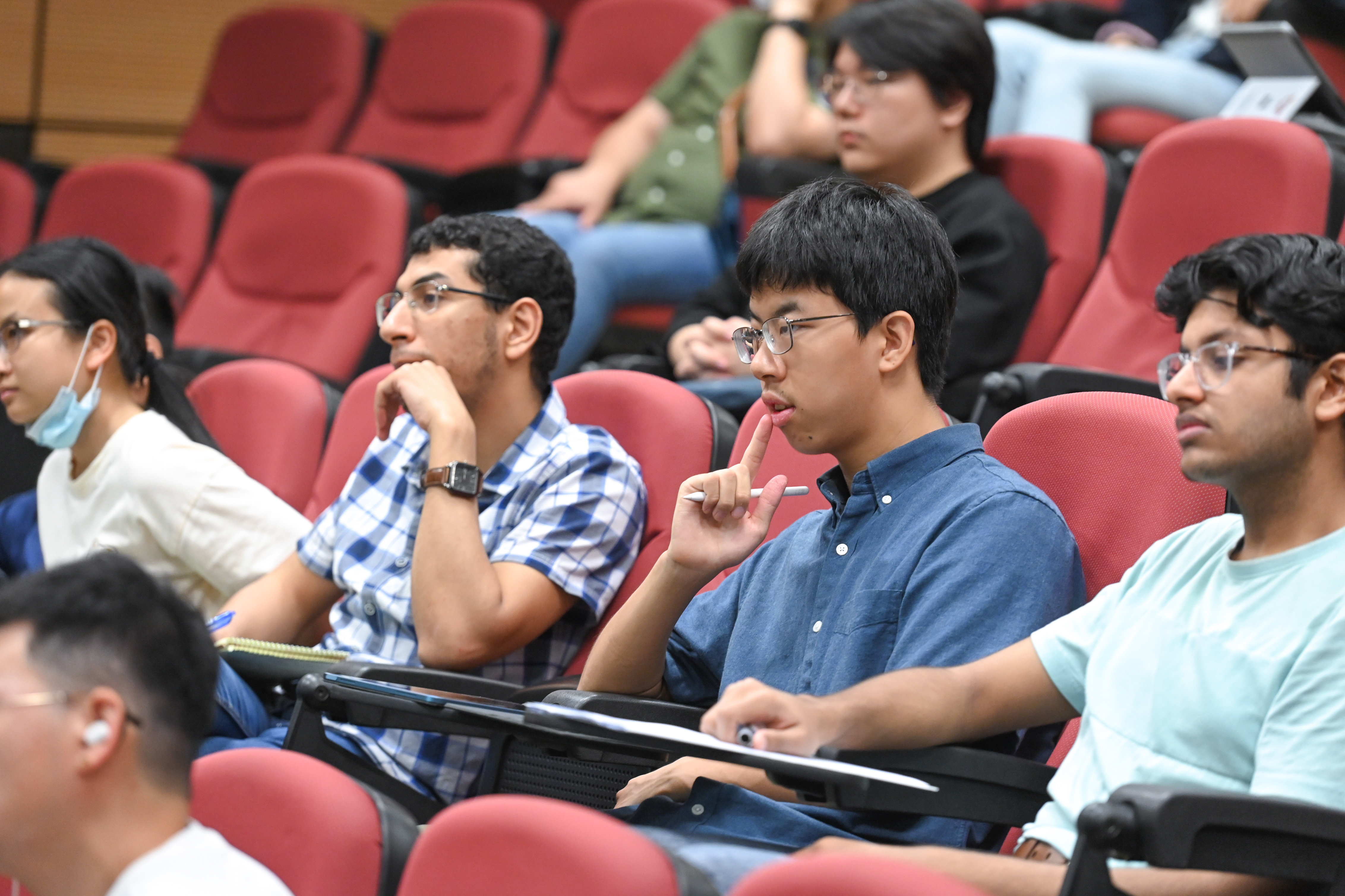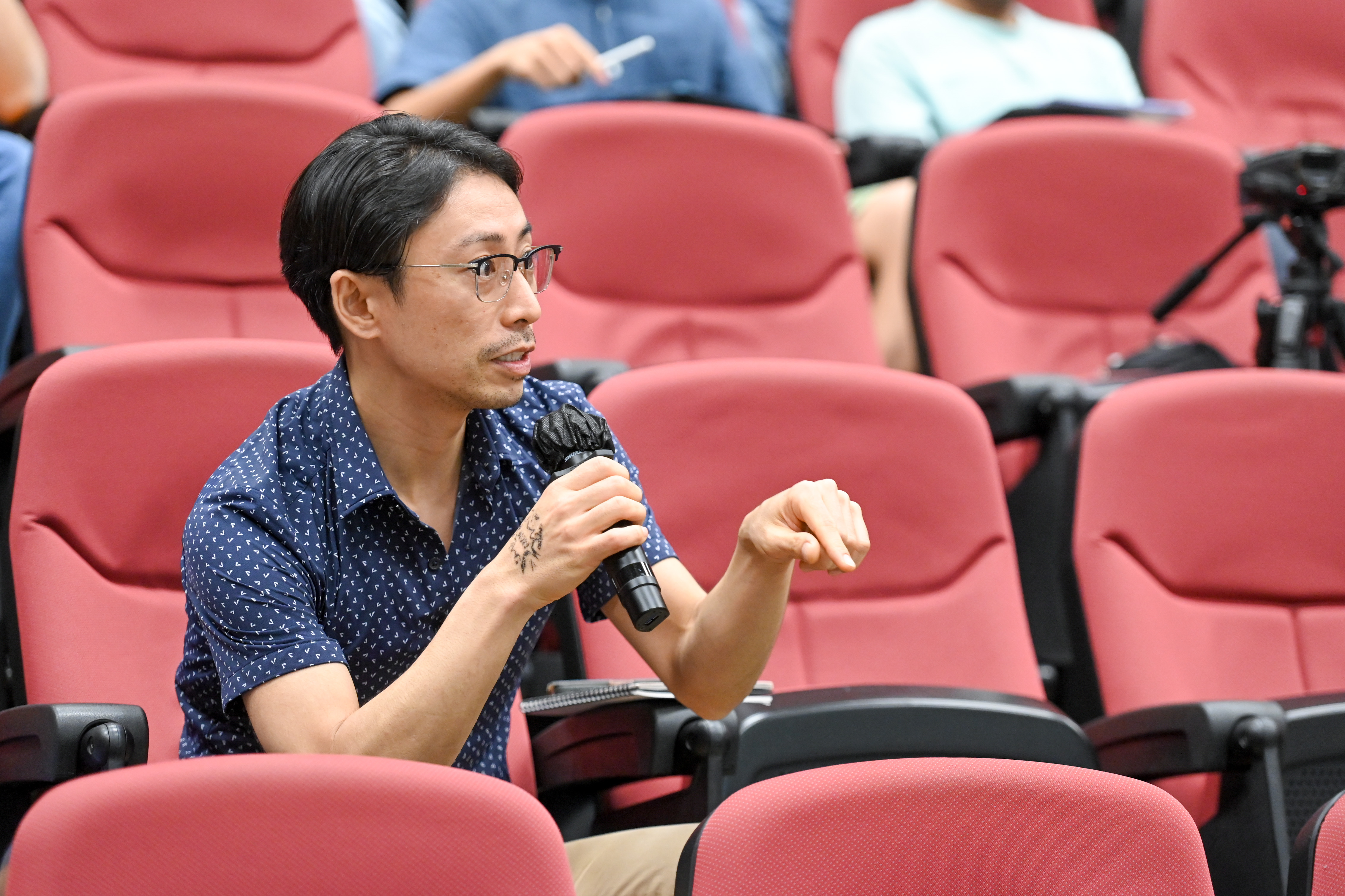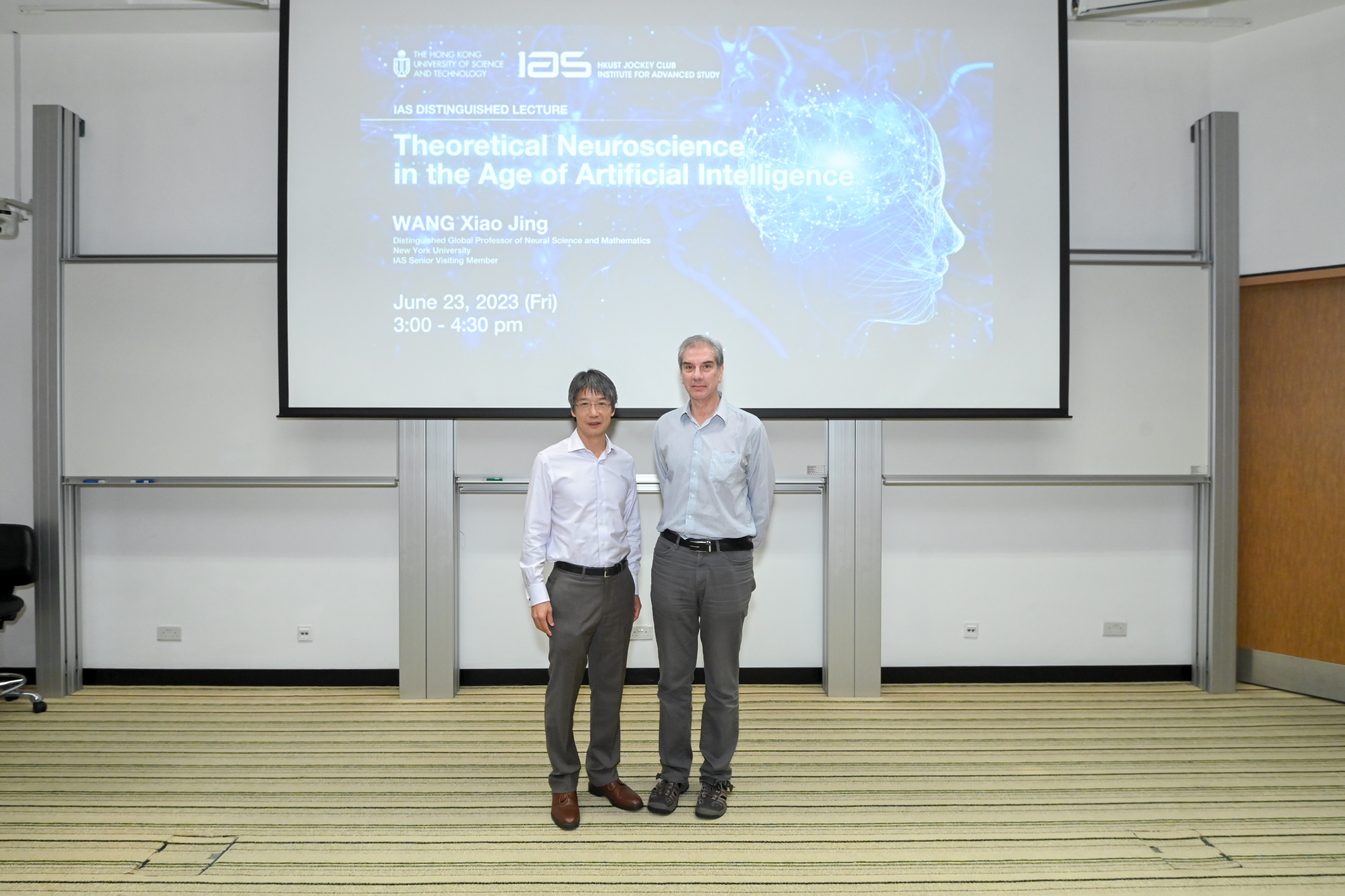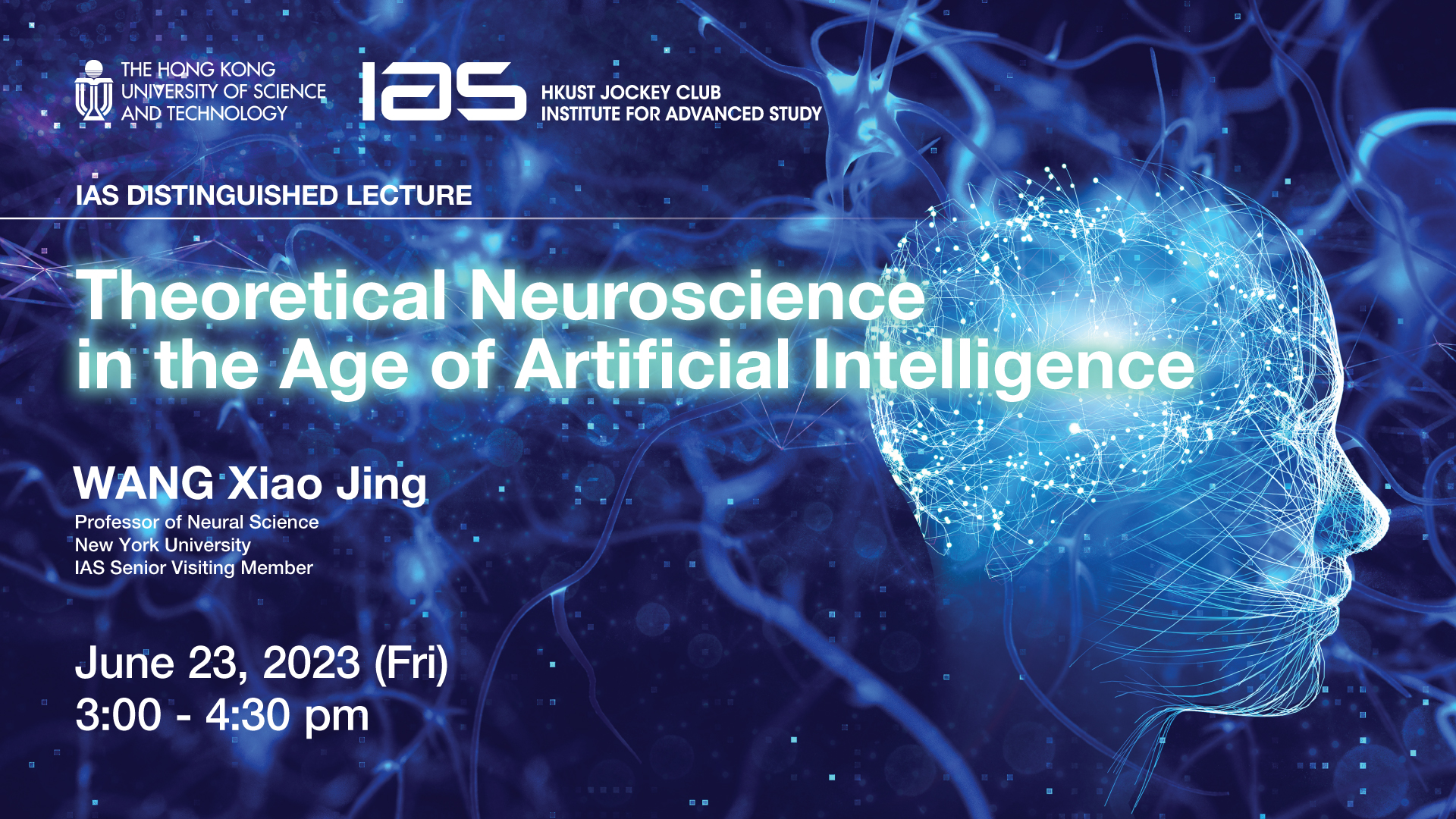Theoretical Neuroscience in the Age of Artificial Intelligence
Abstract
Theoretical/Computational Neuroscience is a highly cross-disciplinary field that plays a significant role in brain research, akin to Theoretical Physics in Physics. Here the speaker will briefly introduce the field, exemplified by recurrent (attractor) neural circuit models for basic cognitive functions such as working memory (our ability to hold and manipulate information internally in the absence of sensory stimulation) and decision-making (how we make choices under uncertainty). The field is entering a new era thanks to advances on two fronts. First, experimental tools for connectome and neurophysiology enable neuroscientists to investigate large-scale multiregional brain systems beyond local circuits. Second, neuroscience and artificial intelligence interact closely with each other in both directions. The speaker will use his own work to illustrate these two exciting new research directions. In particular, he will show how ideas of condensed matter physics and theory of dynamical systems may help us understand distributed cognitive processes in the whole brain.
About the Speaker
Prof. Wang Xiao-Jing obtained his PhD in Theoretical Physics from the Free University of Brussels in 1987 when he switched to the then nascent field of Computational Neuroscience. He was on the faculty at the University of Pittsburgh in 1993-1995, Brandeis University in 1995-2006 and Yale University in 2006-2012. He joined the Center for Neural Science at New York University (NYU) in 2012, where he has been a Professor since then. He also serves as the Co-Director of the Swartz Center for Theoretical Neuroscience at NYU. Between 2012 and 2017, he served as the Founding Provost and Vice President for Research at the Shanghai campus of NYU.
Prof. Wang’s research focuses on theory and neural mechanisms of cognitive functions such as working memory, decision-making and executive control of flexible behavior, with a special interest in the prefrontal cortex (dubbed “Brain’s CEO”). His research and efforts contributed to the founding of the nascent field of Computational Psychiatry. More recently, his group developed theory and connectome-based modeling of large-scale multi-regional brain circuits to investigate whole brain dynamics and distributed cognition. His publications have been cited more than 40,000 and his h-index is 98. He also currently serves on the editorial board of Neuroscience, Faculty of 1000 (Section of Theoretical Neuroscience), Current Opinion in Neurobiology and Progress in Brain Research, to name a few.
Prof. Wang is a recipient of the 1994-1996 Alfred P. Sloan Research Fellowship, the 2012 Guggenheim Fellowship, the 2017 Swartz Prize for Theoretical and Computational Neuroscience, and the 2018 Goldman-Rakic Prize for Outstanding Achievement in Cognitive Neuroscience. He was elected to the Fellow of the American Association for the Advancement of Science in 2012 and to the Member of the Royal Academy of Science, Letters, and Fine Arts of Belgium in 2021.
For Attendees' Attention
Seating is on a first come, first served basis.

